The top officials tasked with steering Torry through a Raac crisis have opened up about the daunting task of wrenching hundreds of residents from their homes.
Stephen Booth and Jacqui McKenzie will oversee the major project, with 299 council households needing to be rehomed “as soon as possible”.
It comes after major concerns emerged about the reinforced autoclaved aerated concrete used in their roofs.
Engineers advised these properties were “high risk”, and it’s hoped the many residents will be in new properties by the end of the summer.
It will mean rapid relocations for people who have come to cherish their homes and community, neighbours being parted and children finding new schools to attend.
The officials are now speaking out in an effort to answer some of the questions surrounding the painful process.
Inside look at Torry Raac crisis with exclusive Q&A
It’s 2pm on Thursday afternoon when I meet corporate landlord Stephen and community empowerment boss Jacqui at Aberdeen City Council’s Marischal College HQ.
About half an hour earlier, the P&J broke the news that hundreds of Raac-riddled Torry homes will need to be abandoned in the months ahead.
To boil it down: Stephen is dealing with the buildings, and Jacqui with the people who live in them.
It’s been a hectic day for the civil servants.
Our exclusive interview reveals:
- How much money residents will be paid to ease the burden of moving
- What help will be offered to the private tenants who bought council homes
- And how the huge project could be completed within about six months
How did it come to this?
Perched behind a laptop in a Marischal College meeting room, Stephen tells me: “These are very unique circumstances for everyone.”
Jacqui adds: “It’s hugely sensitive, we understand how difficult it’s going to be for everyone…”
Stephen explains that it all began with a wide review of the council’s housing stock six months ago.
This involved taking ceilings down and surveying the roofs of both empty and occupied properties.
Bosses had to “start making decisions” when 50 properties were found to contain the crumbly concrete.
Engineers from Fairhurst advised the homes are “high risk”, which is one rung below the “critical risk” designation that would have prompted an immediate, mass evacuation.
It all came to a head in a behind-closed-doors meeting on Thursday morning, where councillors voted to proceed with the drastic rehoming plan.
Within hours, residents living in the affected 1960s blocks were being notified with hand-delivered letters.
Some burst into “floods of tears” as they read them.
When will people have to move out?
Residents were told they would need to be rehomed “as soon as possible”, which sparked some alarm as to just how “soon” that would be.
The officials tell me this will happen “as soon as they are ready, and there are the right options for them”.
Stephen clarifies: “We hope to have the majority of people moved over the summer, depending on their individual circumstances.”
How will council help those having to move?
Everyone having to move will be given £1,500 to cover rehoming costs.
Additional “disturbance payments” will fund removals, new carpets and even school transport costs up until the end of term – if youngsters have to flit to another part of the city.
Money will also be spent on “securing” the vacant Raac-hit houses left behind “as the estate starts to empty”.
And where will this money come from?
The council will cover the cost from its housing revenue account, meaning it will be funded by the rent of tenants city-wide.
This will have a knock-on effect, with upgrades planned at various other properties being delayed until next year.
What about any government cash?
Stephen explains that the Scottish Government has been “approached”, but any central funding might depend on cash from Westminster.
He confirms: “We would be delighted if funding comes forward.”
Torry Raac crisis Q&A: Where will people go?
Jacqui explains that officials have “identified properties across the city” for all of those who need to be relocated.
And she warns that many folk will have to be parted from friends and neighbours they have known for a long time.
She adds: “We understand it’s not going to be enough to rehome everyone within the same area, given the scale of the rehoming required.
“Families will be rehomed according to their needs.
“And we won’t know what that specific need is until we have met with people… But we have reserved a number of properties.”
It was suggested that some people may want to relocate to a different type of home, with older residents perhaps taking the chance to downsize.
How has Ukrainian project helped give planners a head-start?
And this has helped inspire the similar work now under way to refurbish other older council housing blocks.
Jacqui adds: “It’s very similar to the Ukraine project.”
Of the 500 properties needing to be vacated, 364 belong to the council, with 65 of those empty at the moment.
Private owners have 140 of them.
What happens to private owners of former council properties?
Stephen explains that the council has no legal obligation to find new homes for the scores of people who now own the condemned properties built by the local authority 60 years ago.
But they will share their own legal and technical advice as owners navigate the tricky situation.
Stephen says: “We are trying to make it easier for them, we will make our technical reports public…
“But we accept it’s really really difficult for owners. All we can do is offer to help.”
He adds: “The main thing is our tenants, and what we need to do as a landlord.”
What if you don’t want to move?
There doesn’t appear to be any easy answer to this one.
The senior officials tell me that they would “engage” with any reluctant tenant to “understand their needs”.
Jacqui says: “We would need to work with them to explore that.”
How would you react if you were being forced to move? Let us know in our comments section below
What do you do in the meantime?
Essentially, residents in the affected properties have been told to keep a watchful eye for any changes.
If any water starts coming in, or something seems amiss, they should let the council know.
Inspectors will be “on standby” to attend.
And people have been advised against carrying out any sort of work while waiting to be rehomed.
Read more here:
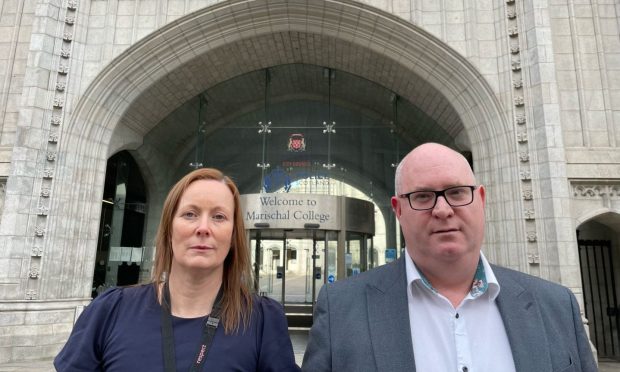


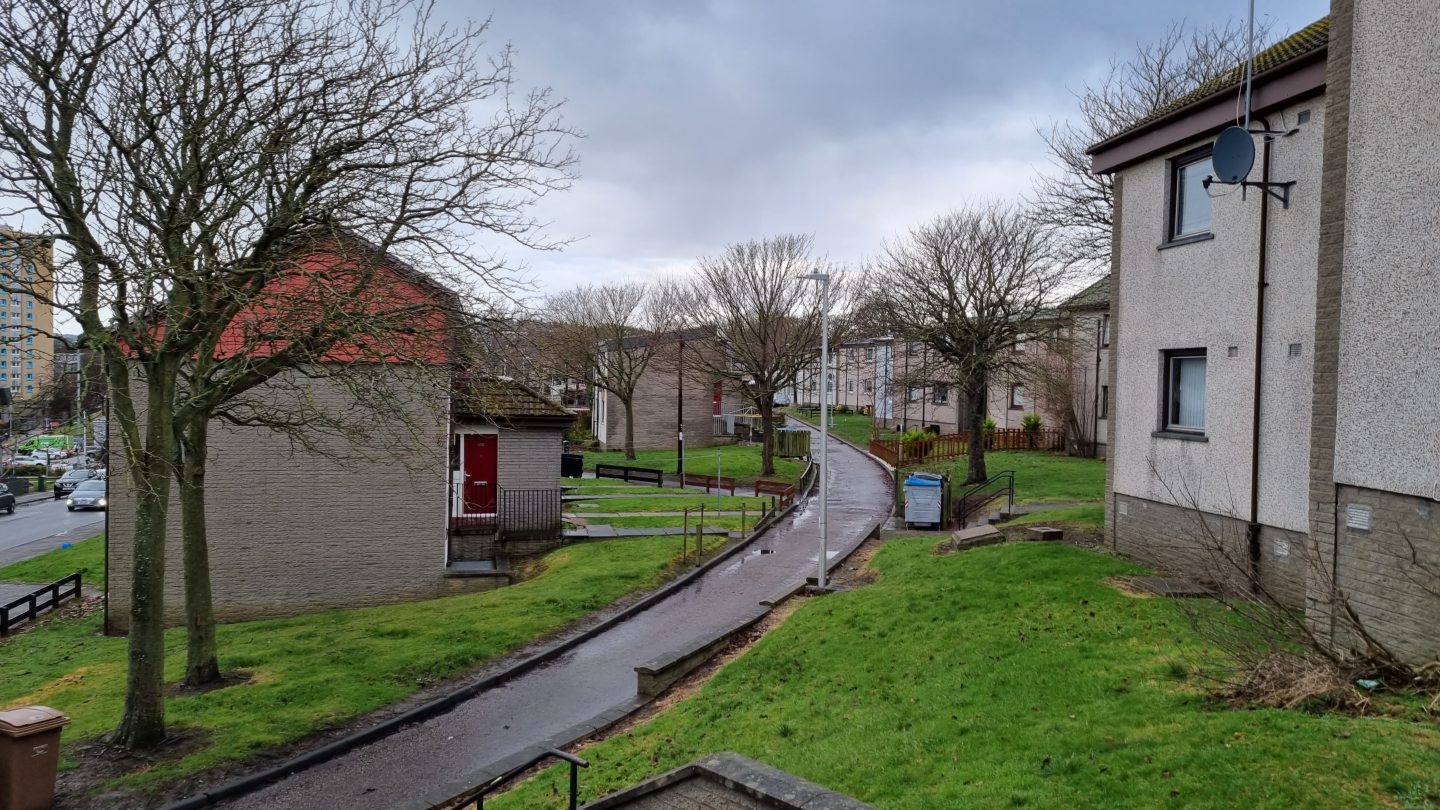

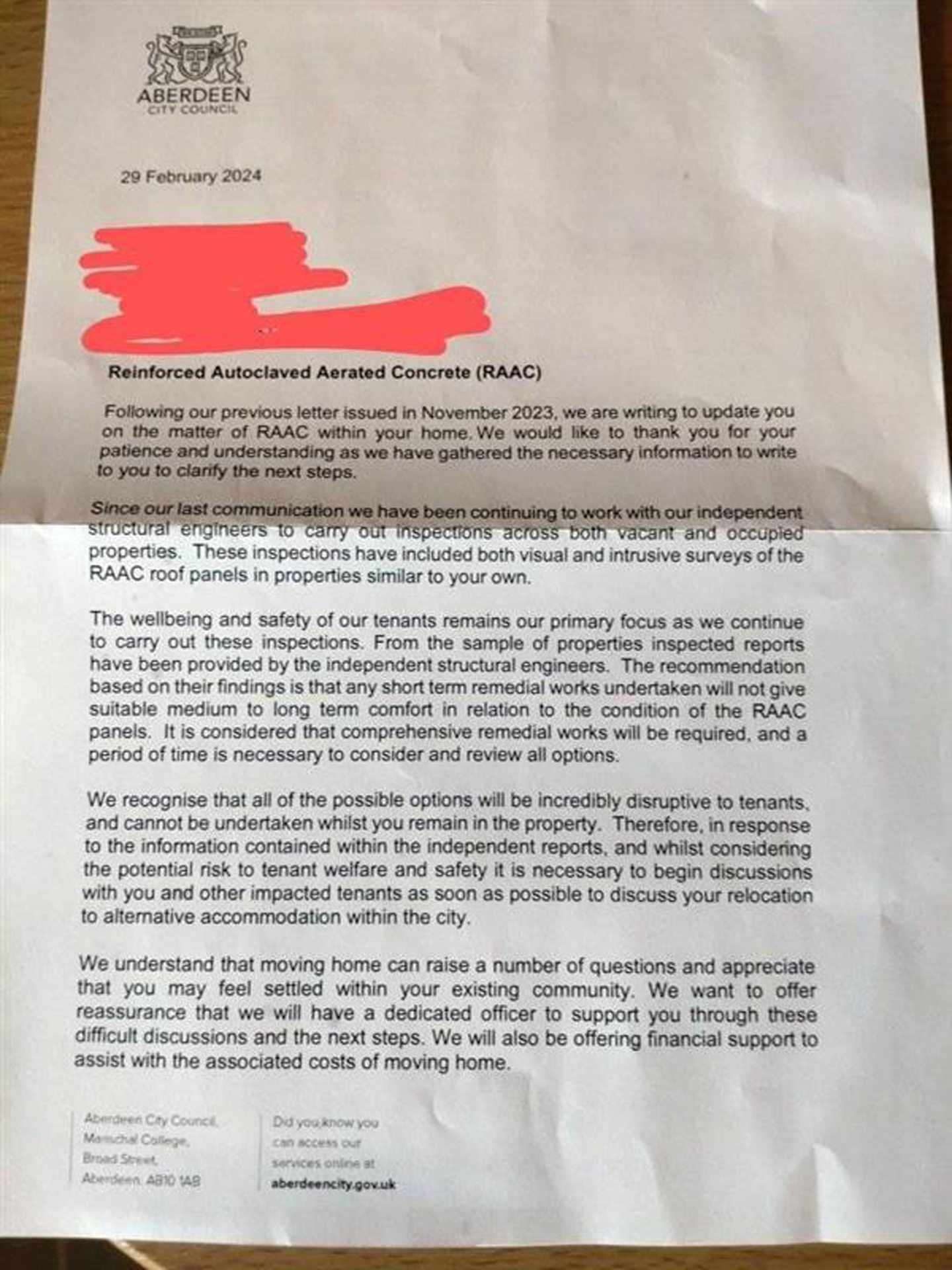
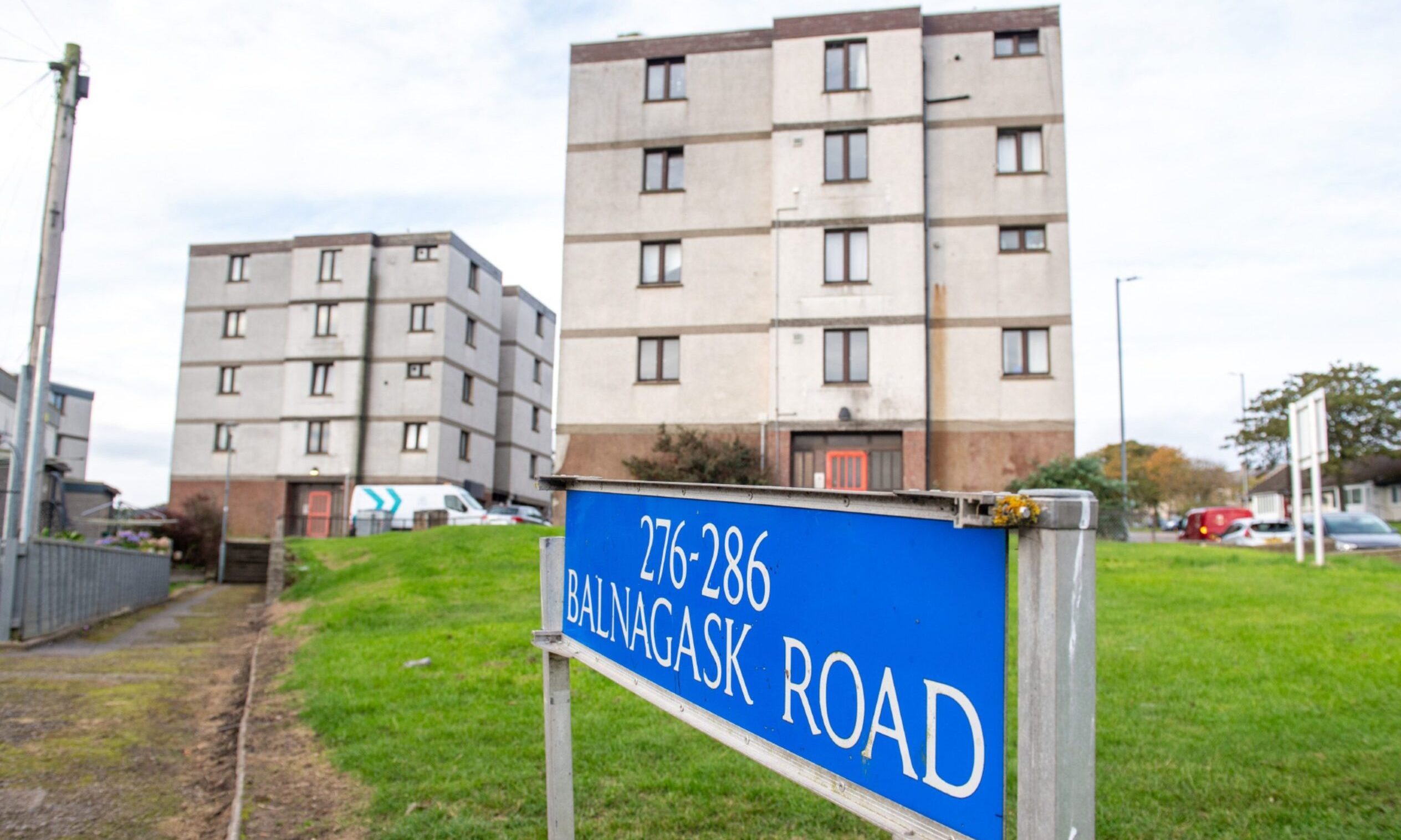

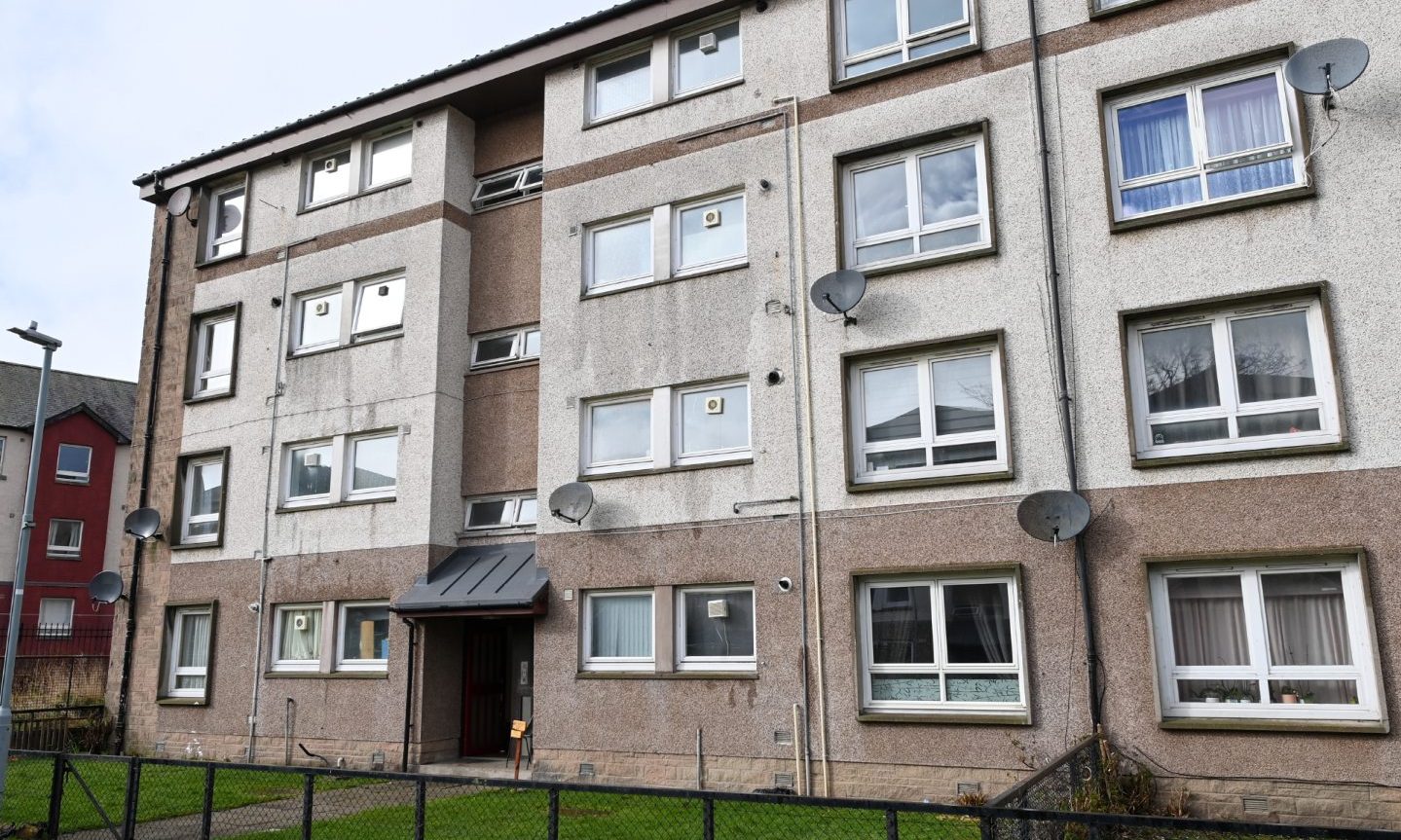
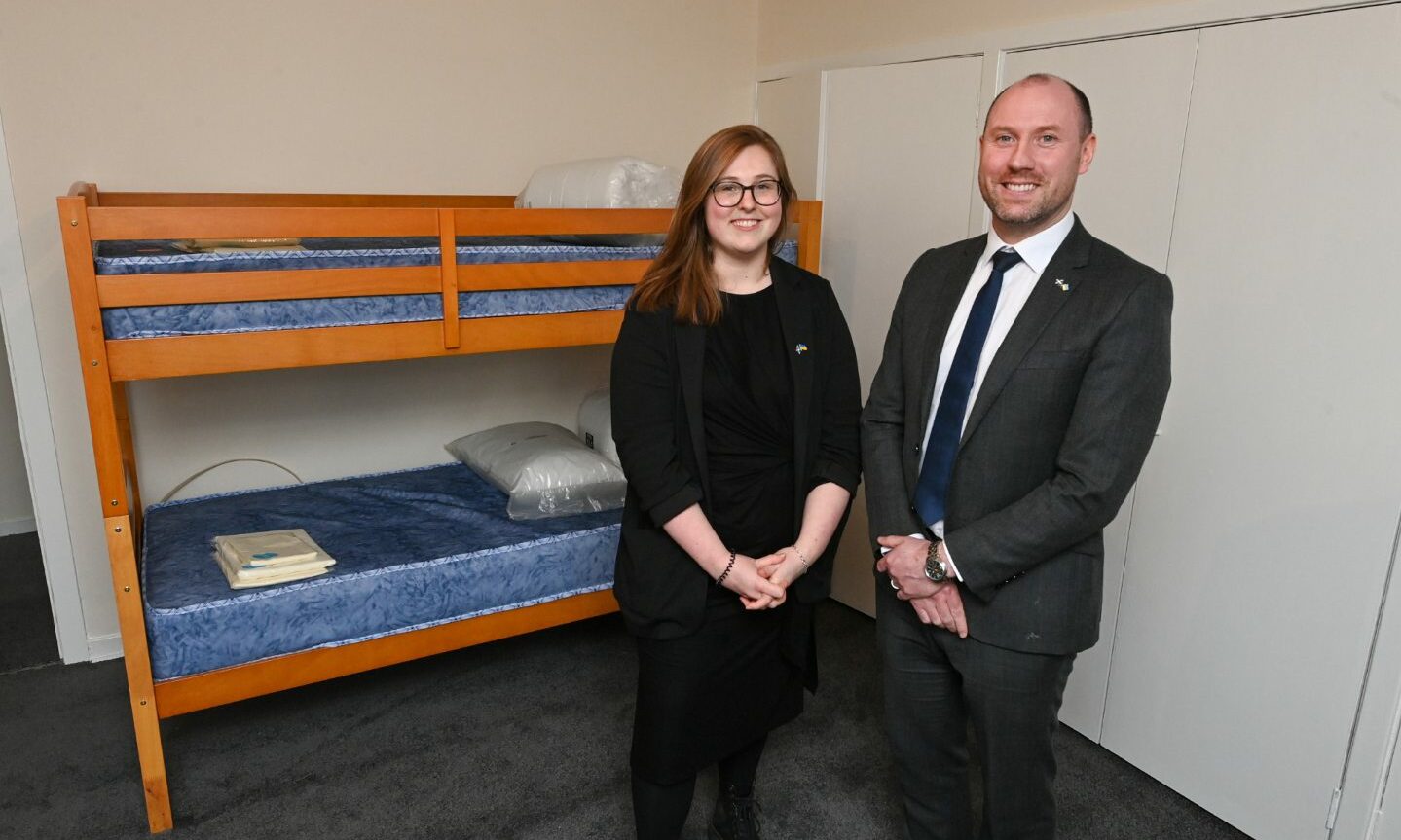


Conversation